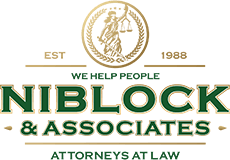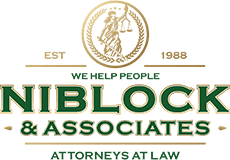Most assets are exempt, meaning you can keep them after filing a Chapter 7 bankruptcy. Maximizing that exemption is a matter of correctly assessing the property’s value for this specific legal purpose, and understanding the role of the trustee.
Debtors must list the value of their assets in the bankruptcy schedules at what lawyers call the “garage sale value.” Small assets, like televisions and laptop computers, are relatively easy to assess, but as the assets get bigger, the process becomes more complicated. As for trustees, their role is to oversee the process and do what is in the best interests of the creditors, which is a limited role that is explained more fully below.
Little Rock debtors have the option of either federal or state exemptions, and most debtors choose the more liberal federal exemptions. However, there are a few cases where state exemptions are more appropriate.
HOMESTEADS/REAL PROPERTY
Accurate valuation is the first step. While hiring a real estate appraiser gives the most accurate figure, this move is usually cost prohibitive and typically unnecessary when filling out Schedule A. A good rule of thumb is that a home’s fair market cash (garage sale) value is about 80 percent of the value listed on the tax appraiser’s website. If the house requires substantial repairs in order for it to pass a pre-sale inspection, such as foundation work, and the only option is an as-is cash sale to an investor, 60 percent of the tax appraised amount is a reasonable value.
Be advised that the latter valuation will almost certainly raise a red flag when the trustee reviews the schedules, so consider this course of action only in certain situations and only after discussing the matter at length with your attorney.
Valuation is important because the amount of equity that the borrowers have in the home may dictate whether federal or state exemptions are appropriate. Arkansas state law allows a debtor to exempt the entire value of the homestead, regardless of the amount of equity. However, as previously mentioned, state exemptions are, on the whole, less generous than federal exemptions. But the federal exemptions cap the amount of equity at $23,675 ($47,350 for married debtors filing jointly).
The other thing to remember about the homestead exemption is that the trustee is not a real estate agent or a real estate investor, so if the house is to be sold and non-exempt equity distributed among creditors, the trustee must make any necessary pre-sale repairs, hire a realtor, pay closing costs, and bear any other related expenses. Many times, the creditors are only left with a few dollars or the estate will lose money on the sale. Either way, it’s not worth it.
The same analysis applies to timeshares, rental property, vacation homes, and other non-exempt real property. If a debtor has a vacant rent house that needs repairs and is rather small, the trustee may not believe that it is in the creditors’ best interests to seize the property, sell it, and distribute the proceeds, given the cost of the endeavor.
VEHICLES
Typically under federal exemptions, the household may exempt one vehicle per licensed driver up to a maximum $3,775. Although this figure seems low, bear in mind that the $3,775 is the amount of equity and not the fair market value. Most vehicles are either new and have almost no equity because the loan balance is so high, or old and have almost no equity because of depreciation.
Moreover, the trustee is not a used car salesperson. Assume the debtor has a ten-year-old car with a blue book value of $2,000. Once the trustee calculates the cost of seizing the vehicle, storing it, performing any needed repairs, detailing it, publishing an ad, screening potential buyers, and showing the vehicle, there is almost nothing left to distribute to creditors.
The same analysis applies to non-motor vehicles, like boats, personal watercraft, or aircraft. Even if the vehicles are not exempt, the cost of selling them may deter the trustee from taking them. Moreover, under the federal exemption scheme, there is a $1,250 exemption that can be applied to non-exempt property, and debtors can also apply up to $11,850 of the unused homestead exemption to otherwise non-exempt property. So, in many cases, these assets are either entirely or mostly exempt.
RETIREMENT ACCOUNTS
For most people, an IRA, 401(k), or other retirement “nest egg” may be their largest asset, and these assets are exempt. The same thing applies to a pension plan or other defined benefit retirement account, in which benefits are not tied to the account balance.
But the exemption does not always apply. In Clark v. Rameker (2014), the United States Supreme Court held that inherited IRAs were not exempt property, because according to Justice Sonia Sotomayor, inherited IRAs have different governing rules that earned IRAs, and they do not represent financial sacrifice on the part of the debtor. The “funds held in such accounts are not objectively set aside for the purpose of retirement,” she wrote for a unanimous Court.
Value is sometimes an issue with defined benefits accounts, because it is essentially a promise to pay money in the future. As such, the “garage sale value” is probably substantially less than the face value, but just how much less is a question to be answered on a case-by-case basis.
CASH
Unless there is room available under the wild card exemption, cash is never exempt. Technically, all the debtor’ non-exempt cash and non-cash property instantly becomes part of the bankruptcy estate when the voluntary petition is filed.
In these instances, the floating check controversy comes into play, and the Supreme Court has never definitively ruled on this question. Assume that Jim Debtor files a petition that lists $1,500 in a checking account on Schedule A. However, it is the end of the month, and Jim’s house and car payments are scheduled to be debited via ACH the next day, and after these payment, the account balance will be zero. So, although the funds were listed in Schedule A, it was not really Jim’s money, at least arguably. If the trustee files a motion for turnover, mootness is often an effective argument in these cases.
Most items are either legally or pragmatically exempt bankruptcy assets. For prompt assistance in this area, contact an experienced Little Rock bankruptcy attorney today. At Niblock & associates, we have four office locations throughout the area.


